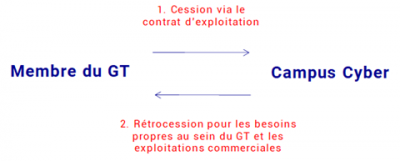« Licences/en » : différence entre les versions
Page créée avec « The relevant reference market for the research and development activities of Campus Cyber members is the '''global market for cybersecurity solutions''', representing worldwide sales of $150.4 billion by 2021. Within this market, '''the activities of the members of the Studio des Communs de la cyber are in fact subject to the application of European antitrust law''', according to the three criteria defined by Article 101 §1 of the Treaty on the Functioning of... » |
Page créée avec « However, the agreement between the members of Campus Cyber should not be considered a prohibited agreement. In fact, '''it is a collaboration between companies whose aim is to carry out R&D-related activities together, a situation permitted under European antitrust law'''. Accordingly, the Studio des Communs has defined a framework contract, to be concluded between members, complying with the conditions laid down in EU exemption regulation 1227-2010. » |
||
| Ligne 20 : | Ligne 20 : | ||
Within this market, '''the activities of the members of the Studio des Communs de la cyber are in fact subject to the application of European antitrust law''', according to the three criteria defined by Article 101 §1 of the Treaty on the Functioning of the European Union. | Within this market, '''the activities of the members of the Studio des Communs de la cyber are in fact subject to the application of European antitrust law''', according to the three criteria defined by Article 101 §1 of the Treaty on the Functioning of the European Union. | ||
However, the agreement between the members of Campus Cyber should not be considered a prohibited agreement. In fact, '''it is a collaboration between companies whose aim is to carry out R&D-related activities together, a situation permitted under European antitrust law'''. Accordingly, the Studio des Communs has defined a framework contract, to be concluded between members, complying with the conditions laid down in EU exemption regulation 1227-2010. | |||
<div lang="fr" dir="ltr" class="mw-content-ltr"> | <div lang="fr" dir="ltr" class="mw-content-ltr"> | ||
Version du 13 septembre 2023 à 10:47
Legal framework for commons
To ensure that the production of the commons runs smoothly, the Studio des Communs has provided a legal environment enabling all its members to deal transparently with intellectual property. This approach is in line with the Studio's desire to establish a discussion and governance adapted to each production.
Given the potential business impact of the productions, the Studio des Communs has validated that the activities of the working groups meet the European criteria for exemption from cartel law, and are therefore not prohibited. As a reminder, a cartel refers to an agreement or concerted action that has the effect of preventing, restricting or distorting competition on a given product or service market.
The Studio des Communs provides framework agreements that define the governance, licensing and business model for each common.
The provisions of the SRI 2 directive
Although this does not directly concern R&D activities, it is important to note the provisions of the European Union, which takes a positive view of cooperation between companies in the field of cybersecurity.
Indeed, the exchange of information within structures such as Campus Cyber is now subject to specific provisions set out in the European cybersecurity directive NIS II, which encourages companies to collaborate by sharing cybersecurity information. Such provisions will notably govern activities orchestrated by Campus Cyber whose purpose is the creation of data.
Agreement and exemption for R&D activities
Generally speaking, the issue at stake is to determine the applicability of European antitrust law, as defined by the TFEU, to collaborative activities governed by the Studio des Communs, and the possible exemption they could benefit from under this same legal framework.
The relevant reference market for the research and development activities of Campus Cyber members is the global market for cybersecurity solutions, representing worldwide sales of $150.4 billion by 2021.
Within this market, the activities of the members of the Studio des Communs de la cyber are in fact subject to the application of European antitrust law, according to the three criteria defined by Article 101 §1 of the Treaty on the Functioning of the European Union.
However, the agreement between the members of Campus Cyber should not be considered a prohibited agreement. In fact, it is a collaboration between companies whose aim is to carry out R&D-related activities together, a situation permitted under European antitrust law. Accordingly, the Studio des Communs has defined a framework contract, to be concluded between members, complying with the conditions laid down in EU exemption regulation 1227-2010.
Le Campus Cyber pourrait aussi bénéficier l’article 101 §3 du TFUE qui offre une possibilité d’exemption générale fondée sur la contribution au progrès économique.
Organisation juridique des groupes de travail
Cadre juridique des Groupes de travail
Au sein même des Groupes de travail, il existe deux situations auxquelles s’appliquent les deux cadres juridiques distincts que nous avons évoqués plus tôt ;
| Collaboration pour la création de logiciels | Collaboration pour la création de données | |
|---|---|---|
| Cadre juridique : règlement d'exemption pour la RD | Cadre juridique : directive SRI II | |
| Contrainte : règles strictes à respecter concernant la durée des accords (7 ans), la liberté d'exloiter les résultats et l'accès aux connaissances antérieures des autres membres | Contrainte : aucune, hormis une obligation, à la charge des très grandes entreprises, de notifier leur participation aux autorités de concurrence. |
Accord de coopération et d’exploitation
En fonction de la nature des productions, les Groupes de travail pourront s’appuyer un cadre juridique structuré en deux temps;
- Accord de coopération : définit les modalités de coopération, la confidentialité et l'absence de cession de propriété intellectuelle.
- Accord d'Exploitation : définit les modalités de financement, de gouvernance, de production et de diffusion
Ces deux accords seront conclus entre les membres du groupe de travail à deux moments distincts, encadrant la production des travaux :
L'accord de coopération au moment de la constitution du GT L’accord d’exploitation en fin de cycle de production du livrable par le GT, au moment de la diffusion Principes généraux de gestion de la propriété intellectuelle
Pour les communs qui seront publiés sous une licence ouverte, la gouvernance associée au commun cédera les droits au Campus Cyber qui appliquera la licence sélectionnée pour la diffusion.

Dans le cas des communs réciproques, la gouvernance du commun cédera les droits au Campus Cyber qui rétrocédera les droits aux membres identifiés par la gouvernance.

